Wilderness Therapy to Heal From and Prevent Bullying
At Trails Carolina, we provide therapeutic support for youth and teens experiencing the mental and emotional effects of having been bullied, helping them to develop the resilience, self-worth, and self-confidence needed to overcome the negative effects of bullying and be their own best advocate.
We also recognize that the circumstances causing a person to engage in bullying behaviors can be complex and deserving of attention and that there are negative psychological effects associated with engaging in bullying behaviors.
That’s why our individualized treatment programs are also beneficial for youth and teens who might be labeled as “bullies” or have engaged in bullying behaviors at home or in school. We help these students understand the root of their bullying behaviors and trade in these behaviors for healthier coping strategies and positive choices.
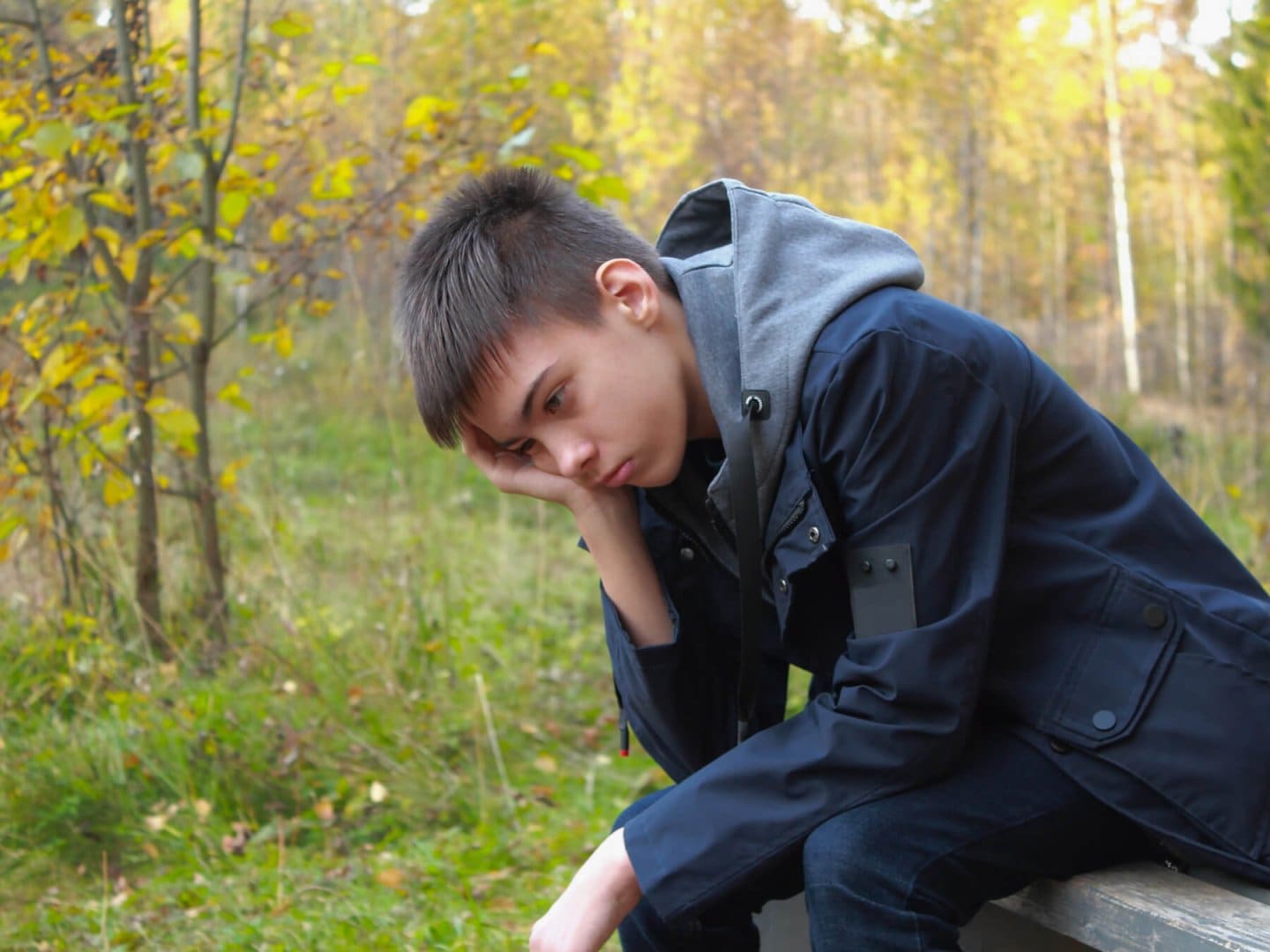
Bullying Prevention Education for Parents and Students:
Trails Carolina integrates bullying education into the curriculum for both parents and students so that they can interrupt when they witness bullying. Our goal is to aid parents in recognizing warning signs and helping students understand the effects of bullying and how to handle its consequences.
Why The Effects Of Bullying Matter
Bullying is a pervasive issue that has negative psychological effects for both those who are bullied and those who engage in bullying behaviors. Although studies show that reports of bullying have decreased over the past 10 years, it is still a prominent issue in the lives of children.
- 1 in 5 students ages 12-18 reported being bullied during the school year (2019)
- Only 25% of reported bullying is done online, through social media, or virtually
- Approximately 160,000 teens skip school daily due to bullying
- Majority of students report being bullied as a result of their physical appearance, race/skin color, or sexuality/perceived sexuality
Bullying Can Lead To The Development Of Mental Health Problems

Bullying hurts everyone involved, leading to negative impacts on their mental health. Individuals who have been bullied or have engaged in bullying are at a higher risk of developing mental health disorders, such as depression and anxiety.
Roughly one out of five adolescents has a diagnosable mental health disorder, and roughly one in five students ages 12-18 reported being bullied during the 2019 school year.
At Trails Carolina, each student works with a mental health professional with experience in helping young people navigate bullying effects and improving overall mental health. Our team of therapists and clinicians takes a comprehensive, person-centered approach to addressing co-occurring challenges such as bullying and depression or anxiety.
Understanding Bullying: Types, Effects, and Causes
Types of Bullying
Bullying comes in various forms, each with its own set of negative consequences for both the victim and the perpetrator. It's essential to recognize these different types to address the issue effectively:
- Physical Bullying: This involves direct physical harm or intimidation, such as hitting, kicking, pushing, or stealing personal belongings. Physical bullying often leaves visible scars and can lead to physical injuries.
- Verbal Bullying: Verbal bullying includes name-calling, insults, teasing, or making derogatory comments about a person's appearance, abilities, or background. It can also involve spreading rumors or gossip.
- Relational or Social Bullying: This form of bullying targets a person's social relationships. It may involve exclusion, spreading rumors to damage friendships, or manipulating others to isolate the victim. Relational bullying can be more challenging to detect but can be just as damaging as physical or verbal bullying.

- Cyberbullying: With the advent of technology and social media, cyberbullying has become increasingly prevalent. It involves using digital platforms to harass, threaten, or spread hurtful content about someone. Cyberbullying can occur through text messages, social media posts, emails, or other online means.
- Harassment: This type of bullying includes unwanted sexual comments, advances, or harassment. It can manifest in various ways, from inappropriate jokes to non-consensual sharing of explicit content.
- Prejudice-Based Bullying: Bullying based on factors like race, ethnicity, gender, religion, sexual orientation, or disability is especially harmful. It perpetuates discrimination and can lead to severe emotional and psychological distress.
Effects of Bullying Behavior on Victims
The detrimental effects of bullying are far-reaching, with long-term consequences that deeply impact its victims. We firmly believe in the importance of taking a holistic, person-centered view of the negative effects of bullying, recognizing that each individual's experience is unique and requires a tailored approach to healing and recovery.
Low self-esteem and self-worth:
Bullied children often internalize the negative messages they receive from bullies, leading to a diminished sense of self-worth and self-esteem. They may begin to believe that they are inherently flawed or undeserving of respect and kindness.
Depression and anxiety:
Persistent harassment and the emotional toll of bullying can lead them to develop depression or anxiety. Bullied kids may struggle with overwhelming sadness, a sense of hopelessness, and constant worry about potential bullying incidents.
Social isolation and loneliness:
To avoid bullying, victims may withdraw from social activities and isolate themselves from peers. This isolation can result in profound loneliness, further exacerbating their emotional distress and hindering their ability to form meaningful relationships.

Academic difficulties:
The emotional turmoil caused by bullying can impair a student's ability to concentrate and perform well academically. This may result in declining grades and a decreased interest in learning. Many students who have experienced bullying in middle school or high school may skip school in an attempt to avoid the bullying behavior.
Physical health problems, such as headaches or stomach aches:
The stress and anxiety associated with bullying can manifest as physical symptoms, including frequent headaches, stomachaches, and other psychosomatic complaints. These physical ailments can further disrupt a victim's daily life and well-being.
Trauma-related symptoms:
In severe cases, victims of bullying can develop symptoms similar to those seen in individuals who have experienced trauma. This may include flashbacks, nightmares, hyper-vigilance, and an ongoing fear of being targeted again.
Negative Impact of Bullying Behavior on Bullies
The negative impact of bullying extends beyond its immediate victims, affecting those who engage in bullying behaviors as well.
The long-term effects faced by bullies can include an increased risk of legal problems, difficulties forming healthy relationships, poor academic achievement, continued aggressive behavior into adulthood, and the emotional and psychological challenges they often encounter. It underscores the need for comprehensive interventions and support to break the cycle of aggression and promote healthier behaviors.
Increased risk of legal problems:
Bullies who engage in aggressive behaviors, or even especially those involving physical harm or cyberbullying, may face legal consequences. This can include criminal charges, probation, or court-ordered counseling. Such legal problems can have a lasting impact on their future prospects.
Difficulty forming healthy relationships:
Bullies often struggle to form healthy, meaningful relationships with peers. Their aggressive behaviors can alienate potential friends, leaving them socially isolated and reinforcing negative patterns of interaction.
Poor academic achievement:
Engaging in bullying behaviors can divert a bully's focus away from school and academics. Their involvement in bullying, disciplinary actions, and potential legal consequences can lead to low academic achievement, hindering their educational progress. In some cases, they may be banned from certain school participation activities.
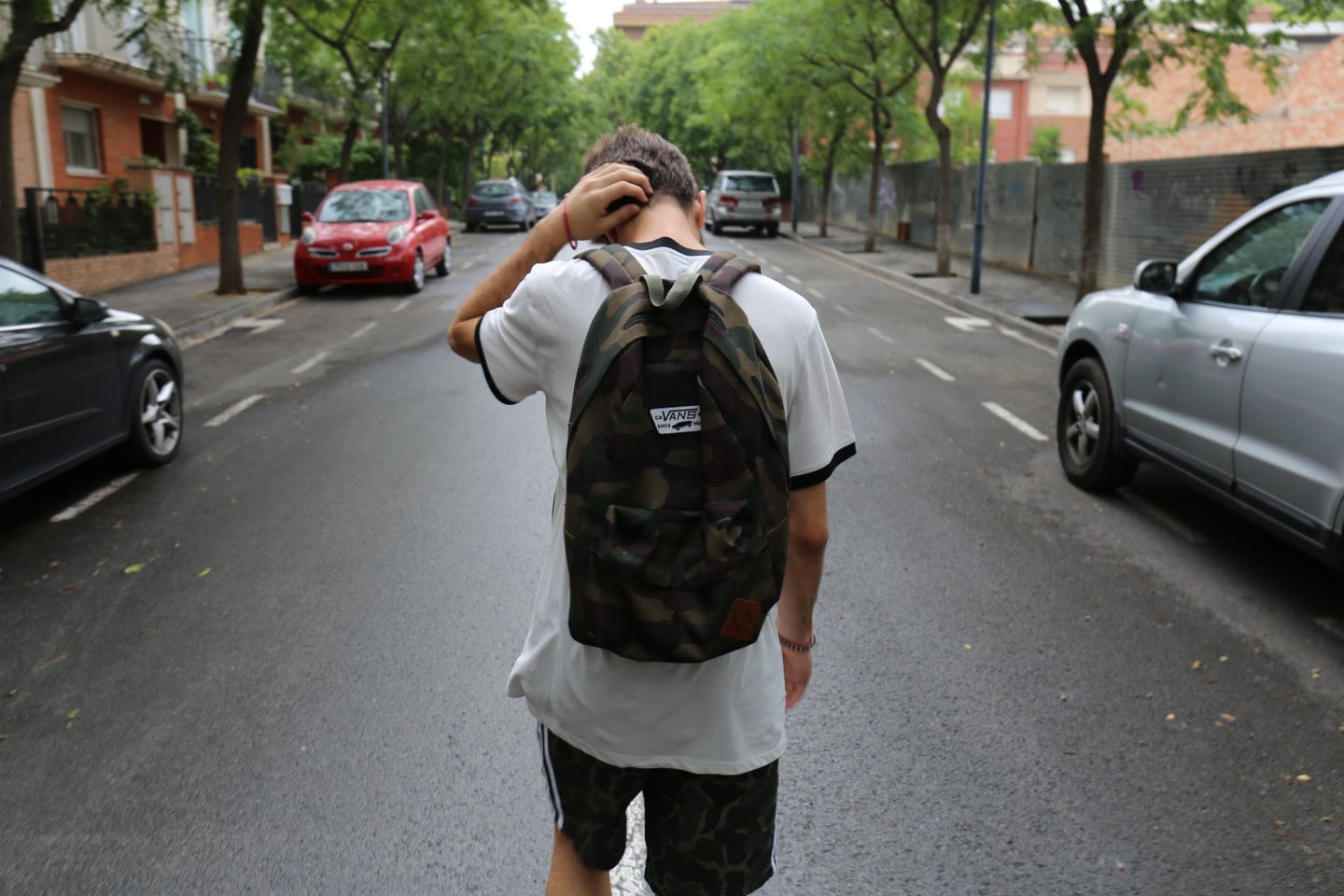
Continued aggressive behavior into adulthood:
Without appropriate intervention, some individuals who engage in childhood bullying may carry these aggressive behaviors into adulthood. This perpetuates a cycle of harm to others and can lead to strained personal and professional relationships.
Emotional and psychological issues:
Bullies may grapple with their own emotional and psychological challenges. These issues can stem from their participation in bullying, the social consequences they face, or the guilt and regret they may experience. The individual may experience depression, anxiety, or difficulties with impulse control.
It's crucial to remember that both victims and bullies require support and intervention to address the consequences of bullying. Comprehensive anti-bullying programs should aim to break the cycle of aggression and provide resources for emotional healing and behavioral change for all involved parties.
Reasons Why Kids Bully Others
Understanding the motivations behind bullying behaviors is essential for developing effective prevention and intervention strategies. While every case is unique, several common reasons may drive kids to bully others:
- Seeking Power and Control: Some children bully to exert power and dominance over others. They may enjoy the feeling of control and superiority when they intimidate or harm their peers.
- Imitating Role Models: Children often mimic the behaviors they observe in their families, communities, or media. If they witness adults or peers engaging in bullying, they may adopt these behaviors as a means of fitting in or gaining approval.
- Lack of Empathy: Some bullies struggle to understand or empathize with the feelings of their peers. This lack of empathy and inability to feel bad for those whom they have bullied can make it easier for them to engage in hurtful actions.
- Insecurity and Low Self-Esteem: Paradoxically, some children who bully may themselves have low self-esteem and use bullying as a way to deflect attention from their insecurities or project a false sense of confidence.
- Social Pressure and Peer Influence: Pressure from peers to conform to certain social norms or to belong to a particular group can lead some children to engage in bullying behaviors, even if they don't initially want to.
- Environmental Factors: Home and community environments can play a significant role in shaping a child's behavior. Exposure to violence or neglect at home, for example, can contribute to bullying tendencies.
Understanding these underlying factors can help educators, parents, and mental health professionals implement proactive measures to prevent bullying and provide support to both victims and those exhibiting bullying behaviors. Addressing the root causes is key to breaking the cycle of bullying and promoting empathy and kindness among children and adolescents.
How To Identify Bullying In Your Child:
Many students who are bullied may not choose to come forward whether it be due to fear, embarrassment, or low self-esteem. Because of this, it can be helpful for parents, teachers, and caregivers to be aware of the key warning signs and changes in behavior associated with bullying.
Here are some symptoms and warning signs that your child may be a victim or perpetrator of bullying:
- Frequent health complaints
- Decrease in academic performance
- Changes in sleeping or eating patterns
- Refusal to attend school or school-related events
- Moodiness and withdrawn behavior
- Violent outbursts and aggressive behaviors
- Substance abuse
- Vandalism and other criminal activities
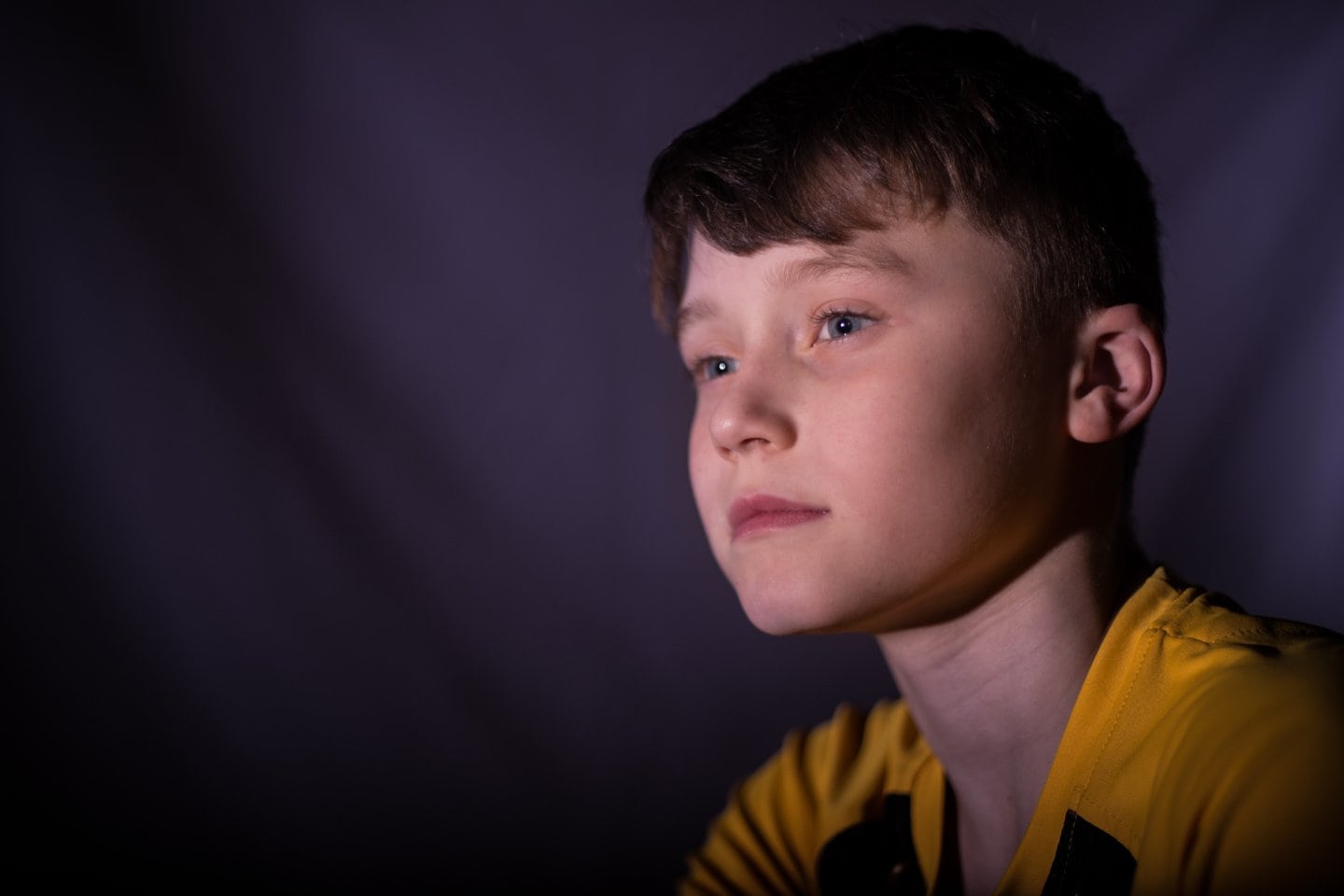
When Is It Time To Seek Help?
If you observe these symptoms and warning signs in your child, it may be time to seek help. Early intervention can prevent serious mental health issues from developing. At Trails Carolina we emphasize the importance of education, awareness, and knowing how to handle potential bullying situations.
Steps Toward Healing:
Trails Carolina is here to help you and your 10-17-year-old son or daughter combat the negative effects of bullying. Here are some steps you can take to support your child:
- Listen and Show Support: Pay attention to what they say and show them that you care.
- Validate Their Experience: If they are being bullied, let them know they have done nothing wrong and that nobody deserves to be bullied.
- Seek Help and Support: You are not alone in this. Reach out to Trails Carolina at 1.800.975.7303 for more information on how we can help.
- Is Your Teen Bullying? Five Ways To Address Bullying In Teens...
Addressing Bullying Through Wilderness Therapy
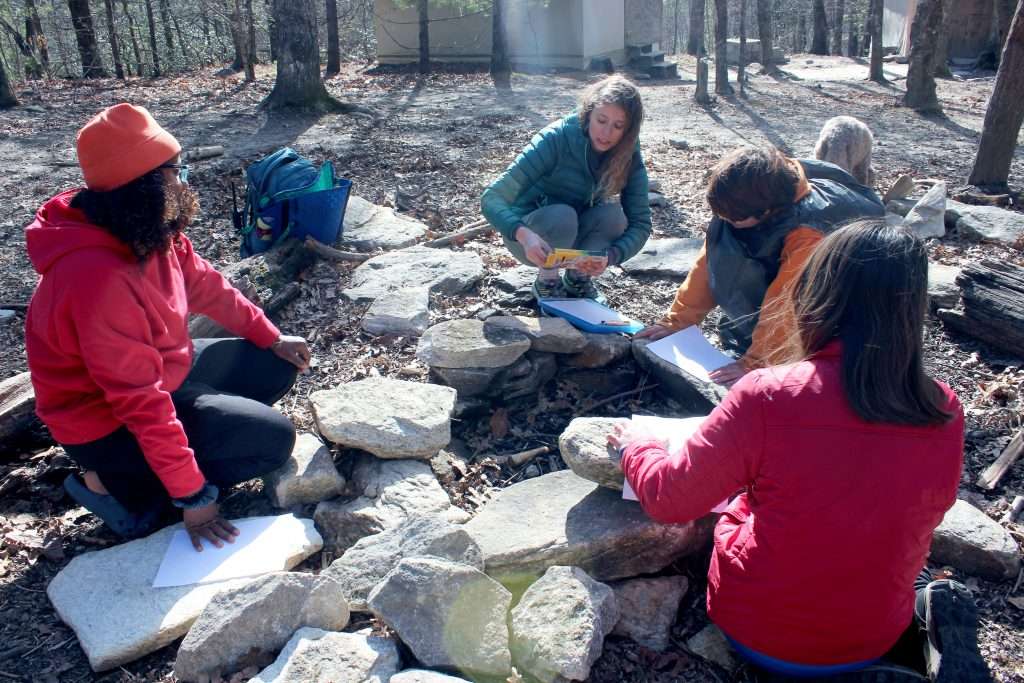
Trails Carolina wilderness therapy program is uniquely designed to address the negative effects of bullying in adolescents and teens. Our approach focuses on:
- Individualized Therapy: Tailoring therapy to address the emotional and psychological needs resulting from bullying experiences.
- Empowerment and Self-Esteem Building: Through challenging outdoor activities and group therapy, fostering self-confidence and a positive self-concept.
- Coping Skills Development: Equipping students with effective coping strategies to manage stress, anxiety, and other emotional challenges related to bullying experiences.
- Supportive Peer Environment: Providing a supportive community where students can share experiences, connect with others, and learn from each other's journeys.
- Family Involvement: Involving families in the therapy process, helping them understand and support their child's healing journey.
Wilderness Therapy for Adolescents and Teens Who Exhibit Bullying Behavior
Trails Carolina's wilderness therapy program also extends support to youth and adolescents who have engaged in bullying behavior. Our focus is on addressing the root causes of their aggressive behaviors and promoting positive change.
How Trails Carolina Wilderness Therapy Treats Youth and Teens Who Have Bullied Others:
- Accountability and Responsibility: Encouraging students to take responsibility for their actions and understand the consequences of bullying behavior.
- Empathy and Emotional Intelligence: Through experiential learning and group therapy, promoting empathy and emotional intelligence to foster understanding and compassion for others.
- Anger Management and Conflict Resolution: Teaching healthy ways to manage anger and resolve conflicts without resorting to bullying or aggression.
- Restorative Practices: Incorporating restorative practices to allow students to make amends and rebuild trust with peers and the community.
- Building Healthy Relationships: Helping students understand the importance of positive and respectful relationships, promoting a supportive and nurturing social environment.
By addressing the negative effects of bullying through wilderness therapy, Trails Carolina provides a transformative experience that helps adolescents and teens heal emotionally, develop crucial life skills, and create a path toward a brighter future.
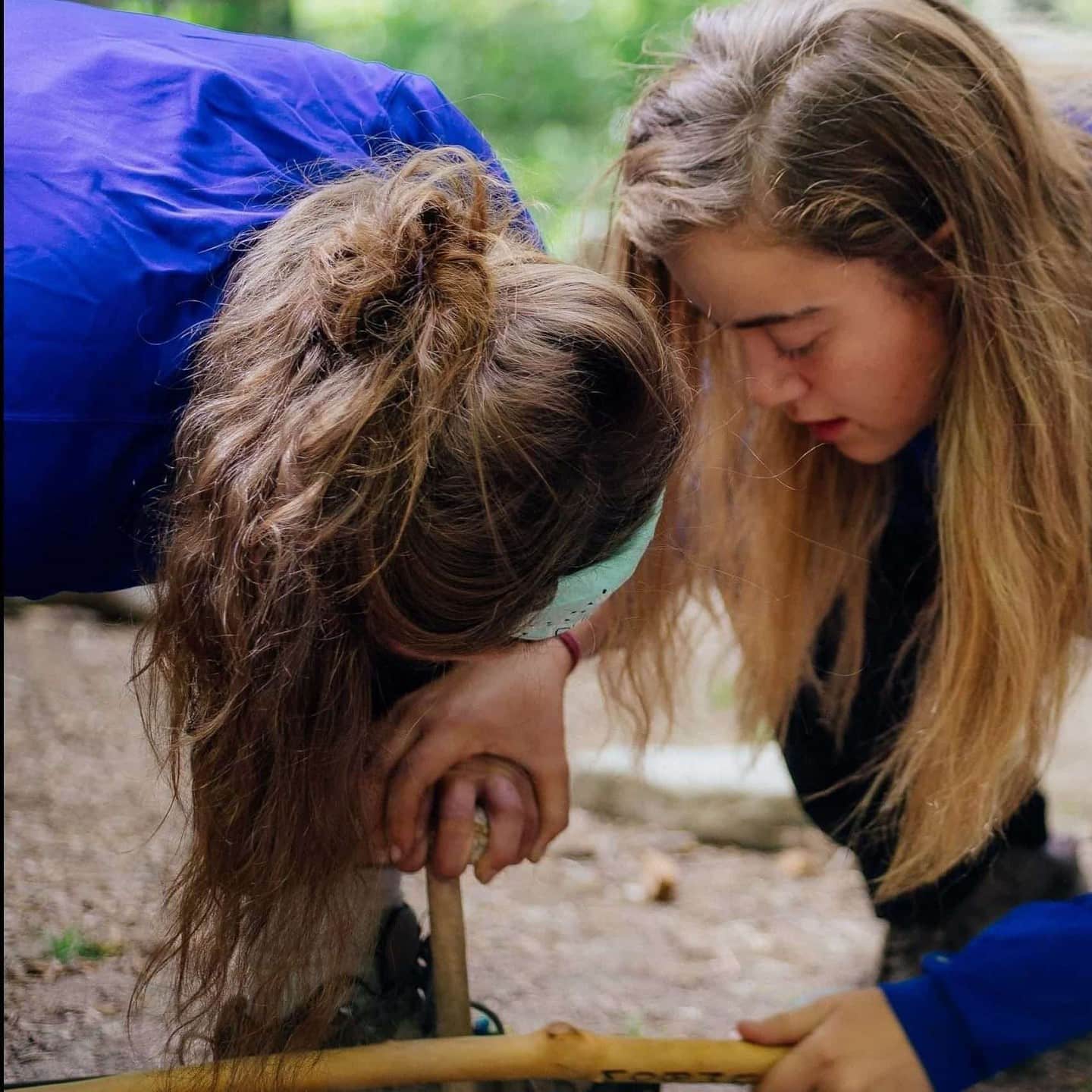
Supporting Bullying Prevention at Trails Carolina
At Trails Carolina, we are committed to not only helping youth and teens heal from the negative effects of bullying but also actively participating in bullying prevention efforts. By addressing both the victims and those who engage in bullying behaviors, we aim to break the cycle of aggression and promote healthier behaviors among youth.
Bullying Prevention Education for Parents and Students
Trails Carolina takes a proactive approach to bullying prevention by integrating bullying education into our curriculum for both parents and students. We believe that awareness and education are essential tools in interrupting bullying behaviors and fostering a safe and respectful community.
For Parents:
- Recognizing Warning Signs: We empower parents to recognize warning signs of bullying, whether their child is a victim or perpetrator, so they can take timely action.
- Understanding the Effects: We educate parents about the emotional and psychological effects of bullying on children and teens, enabling them to provide appropriate support.
For Students:
- Raising Awareness: Our program helps students understand the dynamics of bullying, its consequences, and the importance of empathy and respect.
- Bystander Intervention: We teach students how to intervene when they witness bullying, empowering them to become active agents of change within their peer groups.
By equipping both parents and students with knowledge and tools, Trails Carolina contributes to the broader effort to prevent bullying and create a more inclusive and compassionate community.
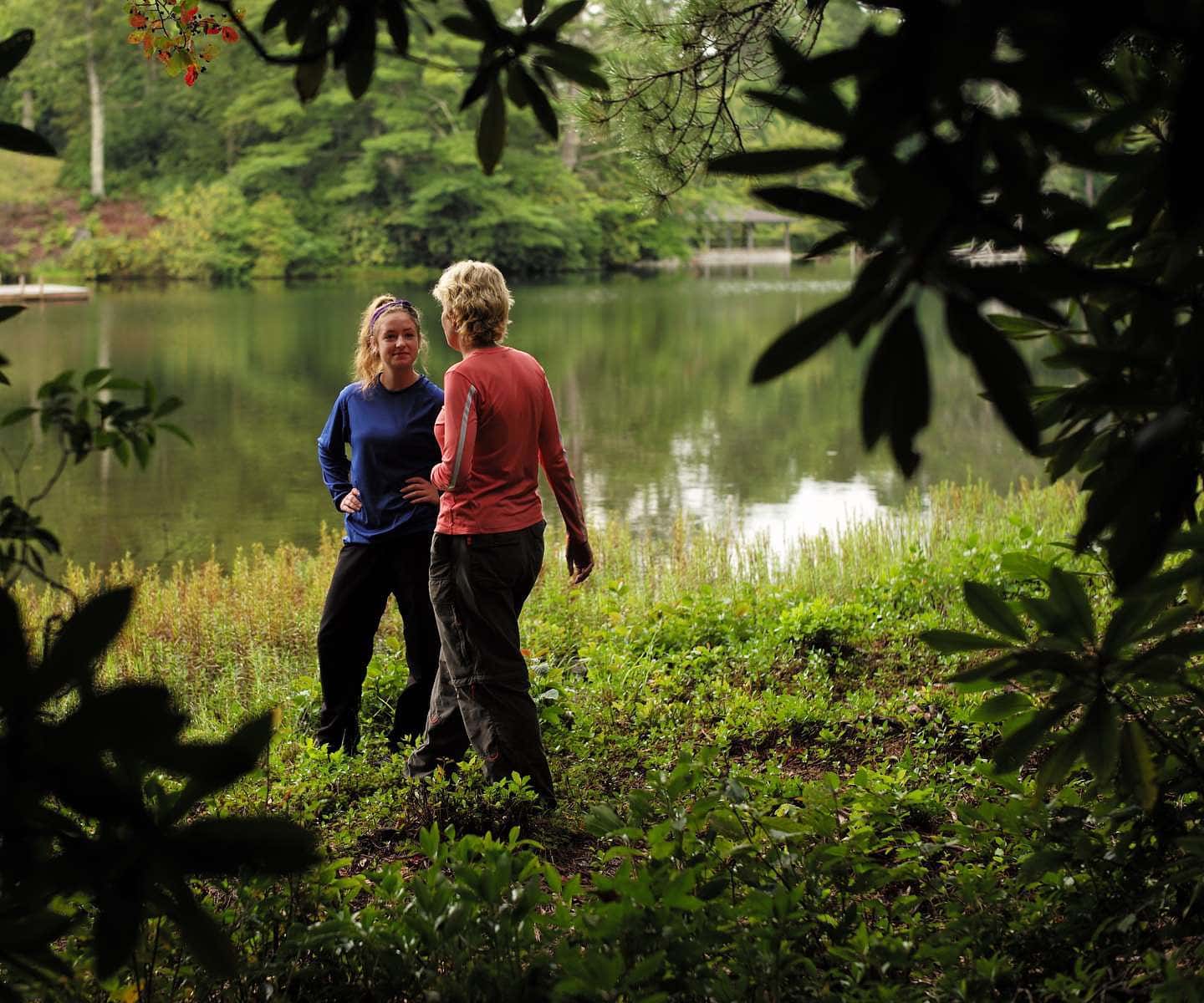
A Holistic Approach to Preventing Bullying
Our wilderness therapy program provides a unique and holistic approach to addressing the negative effects of bullying. We recognize that bullying is a complex issue, and our individualized treatment programs are designed to benefit both victims and those exhibiting bullying behaviors. Here's how our program supports bullying prevention:
For Youth and Teens Who Have Experienced Bullying:
- Healing Emotional Wounds: Our therapy focuses on healing the emotional and psychological wounds resulting from bullying experiences, helping victims regain their self-worth and self-confidence.
- Developing Coping Skills: We equip victims with effective coping strategies to manage stress, anxiety, and other emotional challenges associated with bullying.
- Fostering Empowerment: Through challenging outdoor activities and group therapy, we empower victims to rebuild their self-esteem and sense of empowerment.
For Youth and Teens Exhibiting Bullying Behaviors:
- Accountability and Responsibility: We encourage students to take responsibility for their actions and understand the consequences of bullying behavior.
- Empathy and Emotional Intelligence: Our experiential learning and group therapy sessions promote empathy and emotional intelligence to foster understanding and compassion for others.
- Anger Management and Conflict Resolution: We teach healthy ways to manage anger and resolve conflicts without resorting to bullying or aggression.
By addressing the root causes of bullying behaviors and providing a supportive environment for healing and growth, Trails Carolina contributes to creating a generation of youth who are equipped with the skills and mindset to prevent bullying and promote positive relationships.
Trails Carolina is dedicated to supporting bullying prevention efforts through education, therapy, and empowerment. We believe that by addressing the negative effects of bullying and the underlying causes of bullying behaviors, we can play a significant role in creating a safer and more compassionate community for adolescents and teens.
Get started today
Contact us today to learn how Trails Carolina can help your family
Trails saved my daughter’s life. Amanda is an amazing human and a brilliant therapist. I am so grateful to her, Science Steve, and the other wonderful people who could reach my daughter at a time when I could not.
Margot Lowman August 2022
Great life changing experience for our son. After becoming addicted to gaming during covid he was very depressed. At Trails he experienced the wilderness, Science Steve, learning survival skills and top notch therapy and support etc… I highly recommend! This gave our son and our family a renewed family bond full of love and excitement about his bright future.
Winnifred Wilson July 2022
Outstanding clinical work and superb staff! There’s a great culture at this company and it shows with how they engage with families/clients.
Kristin Brace June 2022



